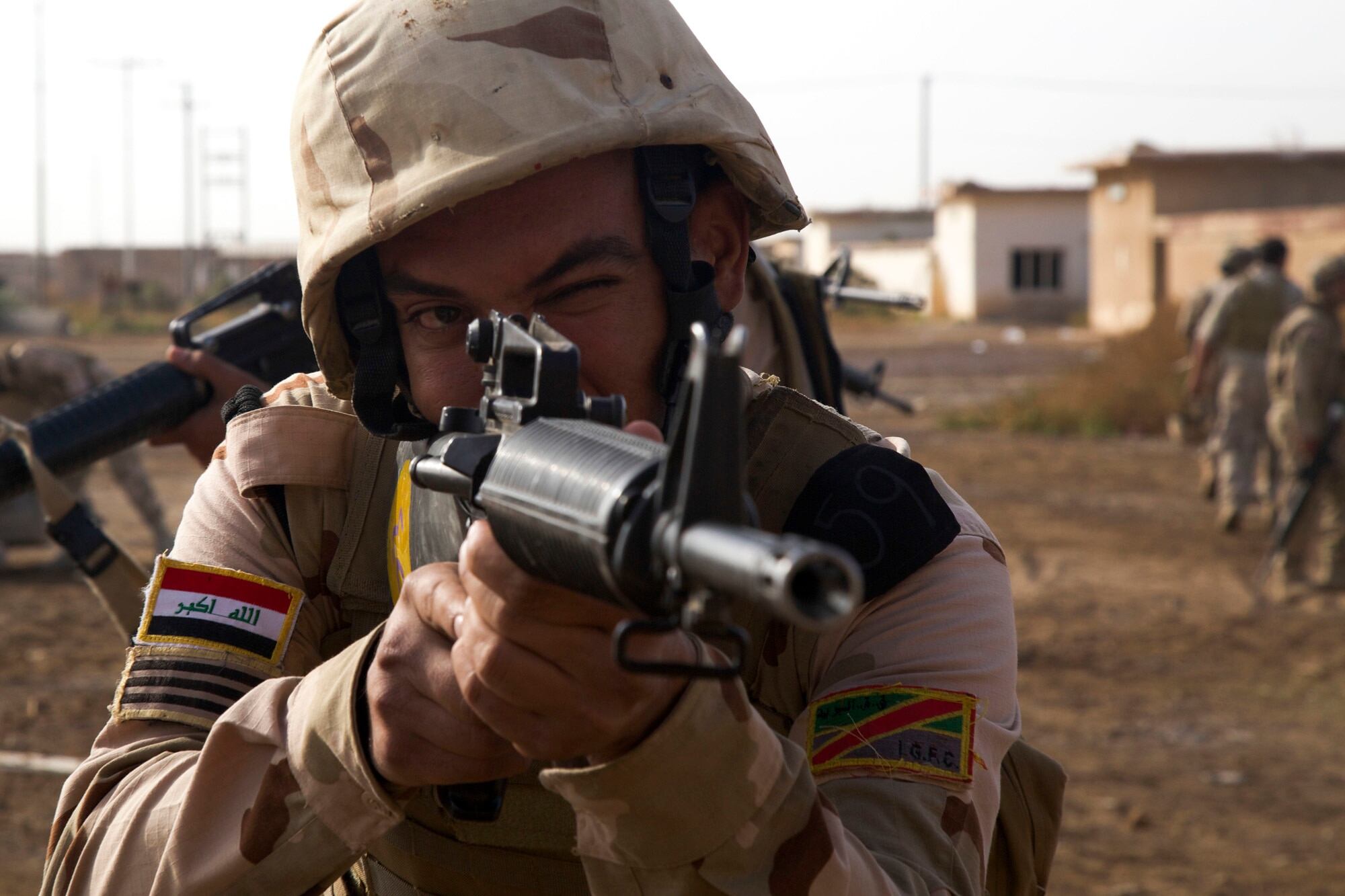The Iraqi military, which is leading the effort to retake Mosul from Islamic State forces, says its forces have pushed to within sight of Mosul neighborhoods, Reuters reports.
Iraq's Shiite-led government says it has assembled 100,000 troops including its own military, Kurdish peshmerga fighters and mostly Shiite militias. The ground attack is backed by U.S. coalition airstrikes. Militants are slowing the assault with sniper attacks, suicide car bombs and roadside bombs.
South of Mosul, Iraqi troops recaptured the ancient city of Nimrud, Iraqi Lt. Gen. Abdul-Amir Raheed Yar Allah said. The Assyrian city, once a center for civilization that dates to 13th century BC, was captured by the Islamic State in 2014. A global outcry erupted last year when the militants bulldozed much of the city's archaeological site to destroy ancient symbols they viewed as idolatrous.
UNESCO Director General Irina Bokova condemned the destruction, describing it as "yet another attack against the Iraqi people, reminding us that nothing is safe from the cultural cleansing underway in the country."
"The Ninth Division of the Iraqi army has liberated the town of Nimrud completely and raised the Iraqi flag over its buildings after the enemy suffered heavy casualties," Allah said in a statement.

An Iraqi soldier attending the Iraqi Army Noncommissioned Officer Course practices combining marksmanship with movement during urban-combat training at Camp Taji, Iraq, Nov. 1, 2016.
Photo Credit: Spc. Craig Jensen/Army
On Monday, a suicide bombing hundreds of miles from Mosul in the Shiite holy city of Karbala killed six civilians, the Iraqi government said.
Some Iraqi victories on the road to Mosul have been problematic. The advocacy group Human Rights Watch issued a report Sunday accusing the Iraqi Kurdistan Regional Government's forces of unlawfully destroying Arab homes and sometimes entire villages in areas retaken from the Islamic State.
Kurdish authorities told the Associated Press they abide by human rights laws. Kurdish official Dindar Zebari said some villages were severely damaged in fierce fighting when villagers fought alongside the militants.
"There was a large presence of IEDs placed in these areas," Zebari said. "I have to say this was a huge cause of the destruction following the liberation process."



